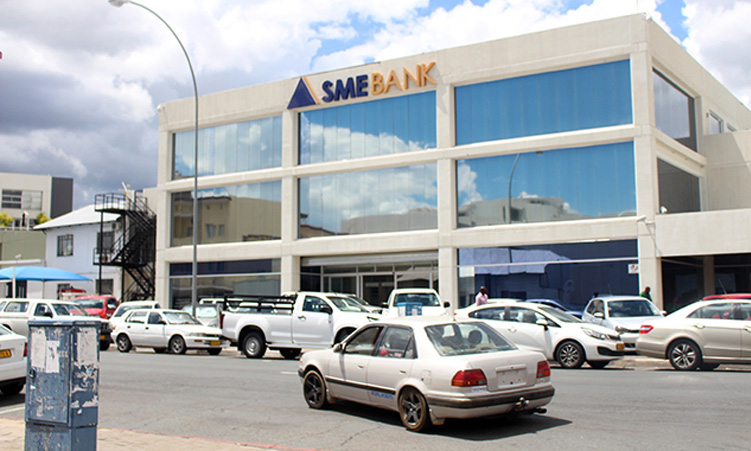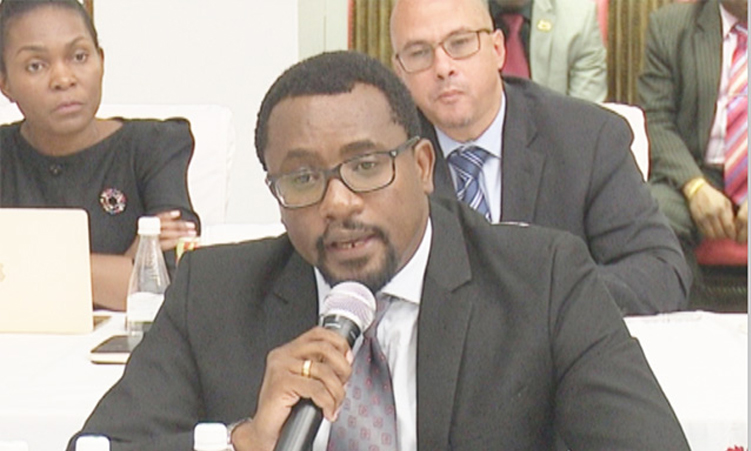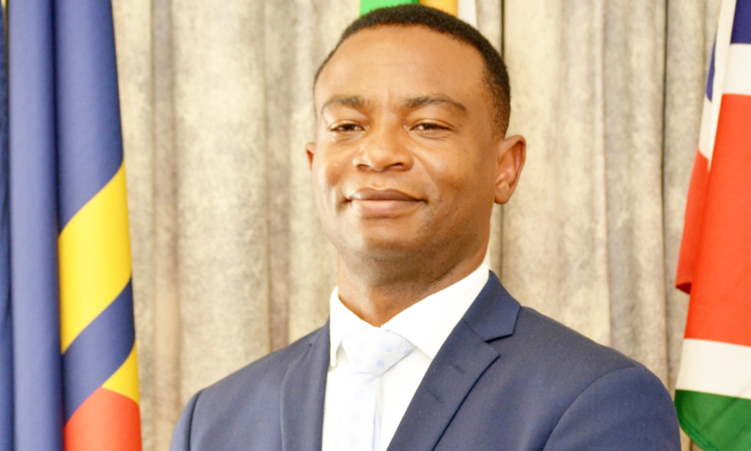10 July 2024: In South Africa, then chairman of the VBS Bank, Tshifiwa Matodzi, was sentenced to 495 years for an array of crimes ranging from corruption to fraud and money laundering involving the loss of nearly N$2 billion of depositors’ money.
Like a split-screen movie putting a scene in context, the Matodzi sentencing contrasted starkly with liquidators of Namibia’s SME Bank holding a press conference in Windhoek at the same time. The liquidators were telling 23 000 depositors they’d be lucky to get 25 cents out of every dollar they entrusted to the SME Bank. Only about half of the N$250m in stolen money could be recovered.
The SME Bank looting started as far back as 2013 before the Bank of Namibia took action in 2017. The N$2 billion VBS crimes Matodzi was sentenced for took place between 2015 and 2018.
VBS officials like its CEO Andile Ramavhunga helped SME Bank chair Enoch Kamushinda and CEO Tawanda Mumvuma steal up to perhaps N$380 million from Namibia’s state majority-owned bank.
The irony should thus not be lost on Namibian taxpayers and SME Bank depositors that across the Limpopo and Orange rivers, prosecuting authorities have at least been providing consolation that corruption and the theft of public funds will not go unpunished.
In Namibia, it appears that both the people entrusted with safeguarding public funds, as well as the suspected criminals who stole the money might only get a slap on the wrist.
Apart from a judicial inquiry held behind closed doors to help liquidators get a sense of how the state-funded bank lost hundreds of millions of dollars meant to support small and medium enterprises (SMEs), no action was taken despite the compelling evidence.
So strong was the evidence presented by liquidators that the Supreme Court expressed concern that no criminal proceedings have been instituted.
Four months ago, which was seven years after the Bank of Namibia (BoN) stopped the SME Bank from trading, the court ordered that the files be given to prosecutor general Martha Imalwa for action. We are not holding our breath. There are already concerns that Imalwa’s office has not done anything. It’s a sad state of affairs.
After all, the SME Bank was established by breaking some basic rules, including that Kamushinda was not fit to run a bank and that several basic issues should have blocked it from being given a licence to operate.
In addition to issuing the licence despite all the red flags, then Bank of Namibia governor Iipumbu Shiimi (now minister of finance) allowed the SME Bank to flout regulations such as providing clean audited financials for at least three years. The scam was staring us straight in the face, but our leaders looked the other way.
It is difficult not to conclude that the SME Bank was allowed to sidestep regulations, because it was set up with the backing of late president Hage Geingob from the time he was minister of trade and while head of state.
It would not be surprising if not only the central government, which pumped about N$1 billion of shareholder capital into it, counts among the biggest losers, but also state-owned enterprises forced to prop up the bank against good governance standards.
Information over the years indicates the SME Bank was used as a cash cow not only by dishonest directors and management, but by an array of government officials and their cronies. It was nothing short of criminal.
Given that the systemic corruption and blatant crimes of the SME Bank are now more than 10 years old, Namibians might as well treat the matter as a case whose trail has run cold.
The most effective antidote now left is for all the files (raw as they are) to be released for public scrutiny. That way, hopefully, posterity can draw lessons aimed at safeguarding public resources for the benefit of the majority who are suffering.
Stay informed with The Namibian – your source for credible journalism. Get in-depth reporting and opinions for
only N$85 a month. Invest in journalism, invest in democracy –
Subscribe Now!










